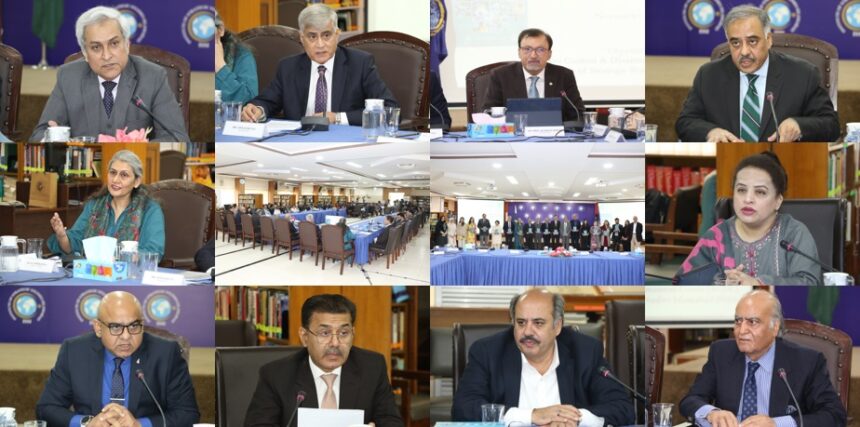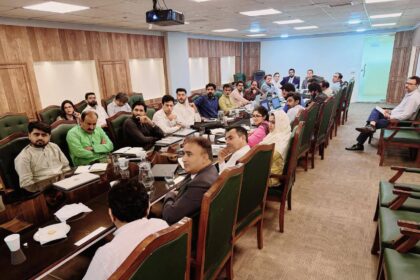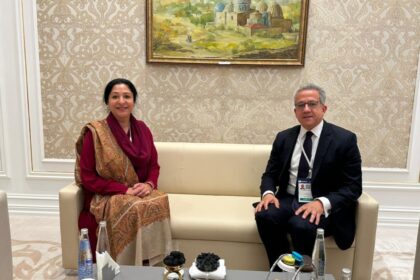The Arms Control and Disarmament Centre at the Institute of Strategic Studies Islamabad hosted the launch of the book A New Era of Uncertainty: Emerging Technologies and Strategic Stability on 6 November 2025, bringing together scholars, defence experts and senior policymakers to discuss the implications of Emerging Technologies for Pakistan and the region.
Ambassador Tahir Hussain Andrabi, speaking as the chief guest, called the book timely and insightful and praised its comprehensive review of Emerging Technologies across land, sea, air, space and cyberspace. He underlined Pakistan’s active engagement in international forums, including the United Nations, on responsible AI use and appropriate regulation of disruptive technologies.
Ambassador Sohail Mahmood, Director General ISSI, highlighted how advances in Artificial Intelligence, quantum computing, hypersonic systems, cyber capabilities and the growing militarisation of space are reshaping deterrence and global power dynamics. He said the book serves as both an academic guide and a policy compass for understanding how Emerging Technologies intersect with security, ethics and geopolitics.
Director ACDC Qasim Mustafa explained that the publication does not merely catalog modern weaponry but examines how Emerging Technologies such as AI, quantum computing, cyber tools and lethal autonomous systems are changing partnerships, doctrine and strategic stability in South Asia. He credited the ACDC team for curating a multidisciplinary volume relevant to policymakers and scholars alike.
Contributing authors emphasised practical concerns. Air Commodore (R) Khalid Banuri discussed how technology has blurred the lines between peace and conflict and accelerated military transformation. Dr Mehreen Afzal examined AI in cybersecurity, noting its dual role as a defensive tool and a source of new threats such as deepfakes and sophisticated phishing. Major General Ausaf Ali (R) warned about the asymmetric effects of autonomous weapons and stressed the need for confidence-building measures to prevent escalation.
Dr Zafar Nawaz Jaspal analysed implications for nuclear deterrence, observing that speed, precision and new vulnerabilities brought by Emerging Technologies prompt divergent views on whether such advances strengthen or undermine stability. Discussants Dr Asma Shakir Khawaja and Dr Zahir Kazmi called for ethical innovation, doctrinal adaptation and legal frameworks to govern technology-driven change, stressing that human judgment must remain central in decision-making.
The event concluded with a vote of thanks by Ambassador Khalid Mahmood, Chairman BoG ISSI, and a group photograph. The launch underscored the importance of sustained policy dialogue on Emerging Technologies and strategic stability in Pakistan and across South Asia.











